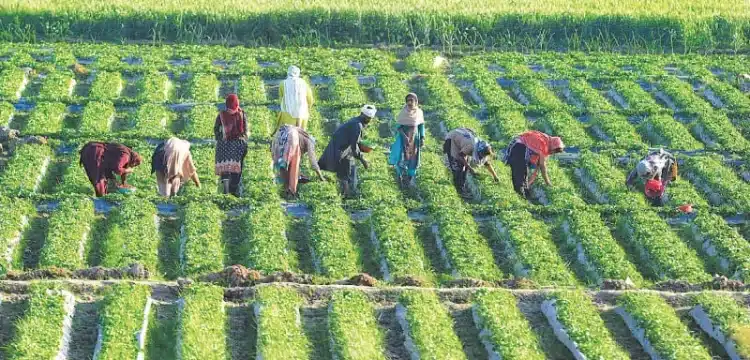Agriculture Sector Faces Funding Shortfall in Budget 2024-25
Share

The agriculture sector in Pakistan, often regarded as the backbone of its economy, has received minimal attention in the budget for the fiscal year 2024 announced by Finance Minister Muhammad Aurangzeb. Despite its significant contributions to GDP (24%) and employment (37.4%), the sector has been allocated only Rs5 billion, primarily for a mechanization scheme under the Kissan Package.
Finance Minister Aurangzeb emphasized the importance of agriculture in his budget speech, noting its crucial role in food security, manufacturing, and export potential. He highlighted the growth of the agriculture sector by 6.25% during FY-24, driven by higher-than-expected production in major crops.
Also Read: Pakistan earmarks Rs2,100 billion for the defense sector in the budget for 2024-25
However, the optimism portrayed by the economic survey contrasts sharply with the concerns voiced by agricultural stakeholders. Sardar Zafar Hussain Khan, President of the Kissan Board Pakistan, expressed deep reservations about the upcoming year. He cited challenges such as high input costs, including overpriced materials and rising energy costs, which threaten farmers’ ability to purchase necessary inputs for the next crop season.
Criticism also extends to the government’s target for agriculture growth in FY-25, set at a modest 2%, despite the sector’s recent robust performance. This discrepancy has raised doubts among farmers and industry leaders, who fear a decline in production due to financial constraints faced by farmers.
The lack of substantial subsidies and support measures in the federal budget has sparked widespread disappointment. Ahmad Jawad, Chief of the FPCCI Agriculture Panel, lamented the government’s neglect of the agriculture sector, particularly in light of Prime Minister Shehbaz Sharif’s vision to double agriculture production. He criticized the federal government for shifting the responsibility of agriculture budget allocations to provincial governments, despite federal control over crucial aspects like electricity tariffs and fertilizer subsidies.
In conclusion, while the agriculture sector showed resilience and growth in the past fiscal year, the current budgetary allocations and policy directions have left many stakeholders disillusioned. There is a pressing concern that without adequate support, Pakistan may face food security challenges in the near future, underscoring the need for comprehensive and proactive policies to sustain agricultural growth and support rural livelihoods.








